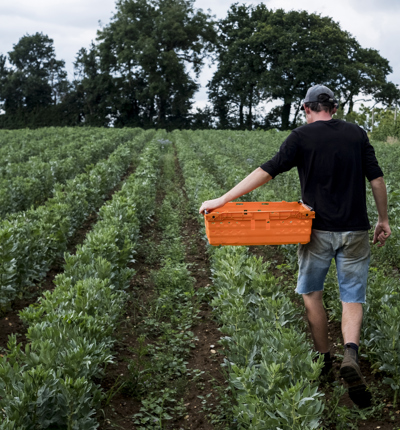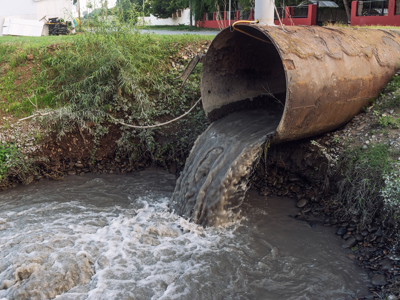
Legal challenge over regulation of genetically modified organisms
Environmental advocacy group Beyond GM has begun legal action against the UK government, challenging new regulations that it believes will allow certain genetically modified organisms (GMOs) to enter the food system and environment without safety testing, labelling or traceability.
Posted on 18 July 2025
The legal challenge contests the Genetic Technology (Precision Breeding) Regulations 2025, which were recently signed into law.
In a formal letter before claim to the Secretary of State for Environment, Food and Rural Affairs, Beyond GM argues that the new rules unlawfully remove long-standing regulatory safeguards for genetically modified crops and fail to account for the risks posed to consumers, organic farmers, food businesses and the environment.
Under the regulations, crops developed using new genetic modification techniques such as gene editing have been reclassified as “precision bred organisms” (PBOs) if the genetic changes are deemed theoretically possible through conventional breeding.
These genetically modified PBOs are now exempt from the existing GMO regulatory framework, including risk assessments and environmental liability provisions.
Beyond GM argues that this change significantly downplays the potential risks associated with genetically modified precision bred organisms, including unintended genetic mutations and long-term ecological impacts. The case also raises concerns over a lack of traceability which means consumers may purchase genetically modified products that they would otherwise avoid, without knowing it.
The new regulations also create inconsistent legal definitions across the UK, Beyond GM says. The group argues this presents significant challenges for organic farmers and businesses, who must still classify PBOs as GMOs under current law.
Beyond GM says the misaligned regulatory framework and insufficient traceability requirements leave organic operators without adequate tools to maintain GMO-free supply chains. The group warns that as a result, organic operators may inadvertently breach organic standards, exposing themselves to reputational damage and financial liability.
In contrast to England, Scotland, Wales and the EU continue to classify PBOs as GMOs, requiring labelling and regulatory oversight. Beyond GM says this could have major consequences for trade, particularly for producers who rely on access to EU markets or require consistent supply chain standards across the UK.
The claim is argued on a number of grounds, including:
- Breach of Article 8 of the Human Rights Act, read with the Aarhus Convention, due to a failure to provide the public with adequate information or consultation prior to the release of PBOs into the market and environment.
- Violation of the rights of organic farmers, whose social and professional identity and livelihoods are placed at risk by potential contamination.
- Failure to assess environmental risks, including the impact of PBOs on protected sites under the Habitats Regulations.
- Lack of proper inquiry and failure to conduct a full impact assessment, despite acknowledged risks to trade and the food system.
- Exceeding the Secretary of State’s legal powers in approving aspects of the Regulations.
Beyond GM calls on the Secretary of State to revoke the regulations and commit to conducting a full impact assessment before enacting any further regulations, and raises the possibility of bringing a judicial review if this is refused.
Beyond GM is supported in its legal challenge by Doves Farm, Daylesford Organic, Hodmedod’s, Abbey Home Farm, Planet Organic, Holden Farm Dairy and journalist and author Joanna Blythman.
Leigh Day solicitor Julia Eriksen, who represents Beyond GM, said:
“The introduction of the new Genetic Technology (Precision Breeding) Regulations 2025 significantly relaxes the rules around how precision bred GMOs are regulated, including the removal of labelling and testing requirements. Our client and their supporters have put the Secretary of State on notice that they are considering a legal challenge on the basis that these changes breach the rights of farmers, food producers and consumers — particularly in relation to contamination risks and the failure to properly assess the environmental impact. This includes the potential effect on protected sites, which should have been evaluated before the regulations were passed.”
Pat Thomas, director of Beyond GM, added:
“Our food system shapes our environment, and we can’t protect either without transparent and truthful information that allows us to make informed choices and take informed actions. These regulations are fatally flawed on a number of grounds, but this action isn't just about the dry technicalities of regulation and procedure. It's about the way that regulation and procedure enable a fundamental right to know what’s in our food, how our food is produced and what impacts it may have on the environment. It’s about protecting the rights of farms and food businesses in the UK that want to – or need to – avoid any kind of GMOs.”




